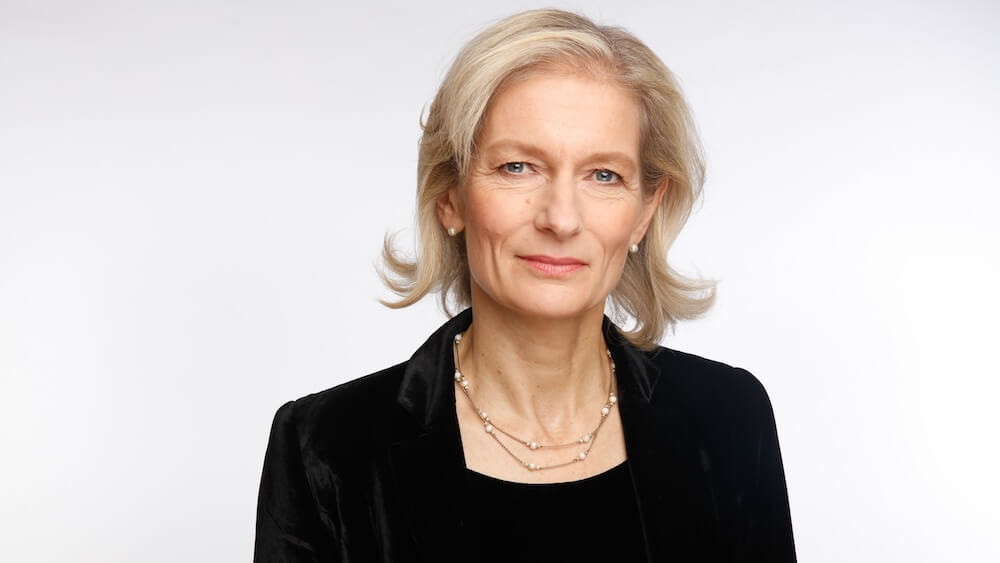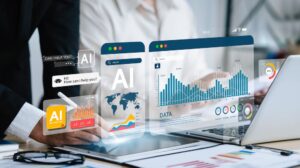


Zanny Minton Beddoes will present the opening keynote, “Shifting Markets, Smarter Strategy: The Global Economic Outlook in 2026,” on the Main Stage at Convening Leaders on Monday, Jan. 12, in Philadelphia.
When Zanny Minton Beddoes moved from working as an economist for the International Monetary Fund (IMF) to writing about emerging global markets for The Economist weekly news magazine in 1994, she discovered that as much as she could learn from spreadsheets, she needed to talk to people to really understand what was going on.
The Economist “was a wonderful door-opener,” said Minton Beddoes, named the journal’s first female editor-in-chief in 2015. “I could always go and talk to the finance minister or the head of the central bank, or the senior business leaders in countries, and piece together what was going on, to try and join the dots. That’s where I kind of cut my teeth on learning how to bring different disciplines together” — like economics and politics.
That goal — joining the dots together from multiple viewpoints — is in the “core DNA” of The Economist, said Minton Beddoes, who will present the opening keynote, “Shifting Markets, Smarter Strategy: The Global Economic Outlook in 2026,” on the Main Stage at Convening Leaders on Monday, Jan. 12, in Philadelphia.
From its founding as a weekly newspaper in London in 1843, The Economist has grown to a multimedia news source with a global readership and editorial offices in five continents covering business, politics, economics, technology, and culture. “The world is moving in a direction where you can’t just think of things through a business lens, or an economic lens, or a geopolitical lens,” Minton Beddoes said. “I think right now it’s very important that you bring people with different expertise together.”
We spoke with Minton Beddoes about her approach to thinking strategically about the future and what is required for us to meet its challenges.
What are some of the major global trends that you watch most closely?
I think we are in the midst of at least three revolutions, each of which will be big enough to be a chapter or two chapters in our grandchildren’s history books. One is the geopolitical shift, which is a huge change from the world where, since 1945, we’ve lived in a world of alliances underpinned by the United States. It was a multilateral order that was set out by the U.S. — and the U.S., as a benign hegemon, has sustained this system of global alliances. And I think we’re now entering a very different world. The U.S. has a very different priority geopolitically. China is rising, Russia is playing a spoiler role and becoming ever more dangerous.
Geopolitically, it’s changed, but economically, I think, we’re in a very big shift. For most of my adult life — I had my first job in the late ’80s, early ’90s — it was the era of growing globalization and a shift away from the state toward open markets. And now I think we’re seeing, in country after country, a very big move in a different direction. We’ve got huge budget deficits across most rich countries, [which is] totally unsustainable. And we haven’t really seen yet the consequences of that, what that means for a globally integrated economy.
And then the third one — it won’t surprise you — is AI, where people talk in sort of lofty hyperbole. But it’s really true that we are in the early stages of a technological revolution that is as big or bigger than the Industrial Revolution. Every industry is going to be transformed. Many, many jobs are going to be transformed and it’s happening remarkably quickly, and we are getting ever more powerful AI. And we are only just realizing just how fundamental that transformation will be. Each of those is dramatic, but when you put them together, it’s exponentially more so.
Would you talk about the role conferences play in the larger world of business and scientific discovery, and in the ability of people to communicate with one another?
I think they play a huge role and I think we’ve learned that, frankly, since the pandemic. We’ve realized just how important getting people together in person to discuss, to communicate, to learn from each other [is]. There was a time during COVID when people thought, “Oh well, you can do everything virtually.” And, actually, it’s just not the same. When all these changes are happening, it’s so important to try and bring people together to try and make sense of it and to bring people from different perspectives together.
I’ve always been a great believer in discussion and debate. I think it’s incredibly important right now when you’ve got such an uncertain moment in the world — there’s never a downside with getting people together. It depends enormously on who you curate, who you get together, but I think it goes beyond just the networking opportunity — to have people from different places, different perspectives, coming together right now is incredibly important.
- Claim or renew your subscription to Convene.
- Want deep-dive insights on events delivered to your inbox? Sign up for our newsletters.
Are there traits or skills you would recommend we should be developing or thinking about to meet the challenges of the current moment?
Open-mindedness, fair-mindedness, balance. We’re in a very polarized world right now, where people often live in their own social media ecosystems. I think it’s extremely important to be fair-minded, to try and engage with and listen to people you disagree with. It’s extremely important to look at things from lots of different angles.
It requires a flexibility of mindset and a much more rounded approach because this moment is characterized most of all by uncertainty. There are many shocks, so much uncertainty about where the world’s heading. And so — being able to both deal with uncertainty and make decisions under uncertainty. And to do that, you have to amass the best possible information that you can and that means talking to as many different kinds of people and getting as many different kinds of information sources as you can.
If you are looking for optimism, where do you go?
I’m by nature an optimist — I’m very much a kind of glass-half-full. I think the mirror image of an uncertain world is just enormous potential and opportunity. And so you can easily depress yourself looking around the world right now, and you can hanker for a more stable past. I don’t do that.
I’m very clear that the old geopolitical system is over. We’re building something new and we’re building at a time when there’s huge potential. So just as artificial intelligence could be extremely dangerous, it also offers enormous opportunity. We have the potential to live much longer and be much healthier. Scientific inquiry and scientific discovery can be accelerated very dramatically.
And in change, there really is opportunity. So we’re going to have a different trade relationship in the world. Most countries are going to have a different relationship with the United States. Some elements of that are alarming — but there’s also, there’s opportunity in that.
Barbara Palmer is Convene’s deputy editor.
Read more about Zanny Minton Beddoes and Convening Leaders 2026 here.








